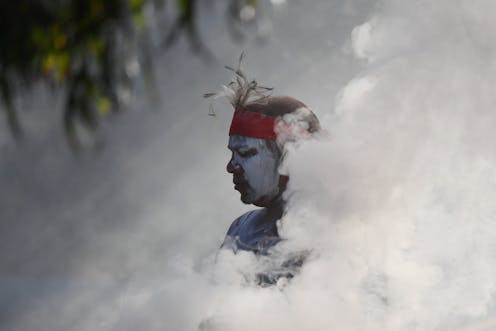60% of Australians want to keep Australia Day on January 26, but those under 35 disagree
- Written by David Lowe, Chair in Contemporary History, Deakin University
 Dean Lewins/AAP
Dean Lewins/AAPThe issue of when or whether to celebrate Australia Day seems to have become stuck in a loop of fierce debate without resolution.
There are those who want to mark January 26 as the start of modern Australia, while others view it as the start of systematic dispossession of Indigenous Australians.
What does the broader public think? A...
Read more: 60% of Australians want to keep Australia Day on January 26, but those under 35 disagree

















